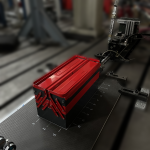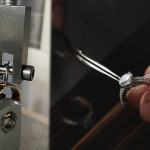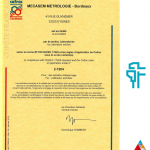The Nadcap accreditation represents today a reference, it is a precious sesame for a company. Its origin and its main advantages: we tell you everything!
Nadcap accreditation: origin and accreditation process
Nadcap accreditation is a mandatory step for many aerospace companies. What’s behind this acronym? Here, you’ll discover how the program was created and what the objectives of Nadcap certification are. The audit process and the procedure to follow for Nadcap accreditation will also be discussed. Finally, we’ll examine the advantages and disadvantages of Nadcap. Here are some tips to follow for obtaining a Nadcap accreditation with peace of mind
The origin of the Nadcap program and the Performance Review Institute (PRI)
Nadcap stands for National Aerospace and Defense Contractors Accreditation Program. This national program for the accreditation of aerospace and defense subcontractors was originally specifically American. Since the year 2000, this cooperative program has expanded to France and Europe. It brings together the largest customers in the aerospace industry (Airbus or Boeing for the largest ones).
As a non-profit organization, PRI has been named administrator of the Nadcap program. As such, it plans audits and trains technical experts who perform the Nadcap audit.
Objectives of implementing Nadcap accreditation
At the outset, the aim was to ensure that the requirements of the prime contractors were the same. The accreditation also aimed to reduce costs and improve quality. The program is not intended to add requirements. In fact, the Nadcap audit is just meant to verify if the procedures are compliant and take into account the specific aerospace requirements. The audit serves to check if they are properly integrated into the company (machining procedure, welding procedure, or purchase order). It applies particularly to the complex subject of special processes.
Processes and products concerned by the implementation of a Nadcap accreditation
The special processes are characterized by:
- Results that can only be verified by destructive testing on the materials;
- Implementation parameters that depend on the geometry of the parts
For example: heat treatment (quenching, etc.), welding or surface treatments. The products are derived from a special production process, such as an electronic circuit or a composite
The Nadcap audit and accreditation process
Nadcap is a program in which PRI’s technical experts, industrial companies, and suppliers work together to establish audit criteria. The auditor designated by PRI plans and conducts the audit. For any non-conformity detected, corrective actions are issued by the company
The process of performing a Nadcap audit
The Nadcap auditor is chosen from among many technical experts in the audited special process. He/she conducts an evaluation of the suppliers’ compliance with customer requirements. He/she reviews a checklist based on the trades to be audited.
Following the audit request by the suppliers, PRI schedules and conducts the audit.
A Nadcap audit verifies the following three points:
- The quality system of the aerospace industrial sector;
- The requirements related to products and special processes;
- Analysis of their conformity.
Each nonconformity is then classified as major or minor by the auditor. Nonconformities are classified as major when they have a potential or proven impact on the product, or when it is a reproduction of a previous nonconformity (ineffectiveness of implemented actions). Beyond the maximum number of minor and major nonconformities defined by PRI according to its accreditation cycle and field of activity, Nadcap accreditation is denied and the process must start over. Any response to nonconformities must be fully written in English within 21 calendar days and include an analysis of root causes and objective evidence of action completion. In case of an unsatisfactory response, a new round of response is opened with a deadline of 7 calendar days. All nonconformities must be closed after a maximum of 4 rounds.
The final Nadcap accreditation process
The report is reviewed by the PRI technical team. The industry then meets in a working group and discusses online with the PRI technical team. Nadcap accreditation is granted following an online vote.
The benefits of Nadcap accreditation for a company
Any aeronautical industry is potentially concerned by the Nadcap accreditation. It applies as soon as it implements special processes, such as non-destructive testing or surface or material heat treatment
The improvement of the quality level within the company
The search for continuous improvement, as well as international cooperation, characterize Nadcap accreditation. However, these approaches require an excellent level of English from the participants, as the audits are conducted entirely in English.
The complexity of the Nadcap audit remains an obstacle for a small company
The accreditation process and its implementation have a significant impact on costs and deadlines for a small company. This double impact will be less for a large aerospace group.
Some tips for obtaining Nadcap accreditation
Here are some tips to follow before embarking on the Nadcap process.
- Study the feasibility of the project and have a good understanding of Nadcap requirements.
- Carefully choose the first special process that will be the subject of accreditation.
- Have the customer order that clearly specifies the special process.
During the accreditation process, it is important to:
- Ensure the management of a working group including the accreditation manager and a representative from all relevant departments.
- Plan internal audits and a white Nadcap audit.
- Communicate within the company about the progress.
After the Nadcap audit, non-conformities must be addressed by identifying their root causes and assessing their impact on products.
Nadcap accreditation is one of the accreditations held by our laboratory, which includes mechanical testing and machining of specimens. Want to learn more? Don’t hesitate to contact us!





